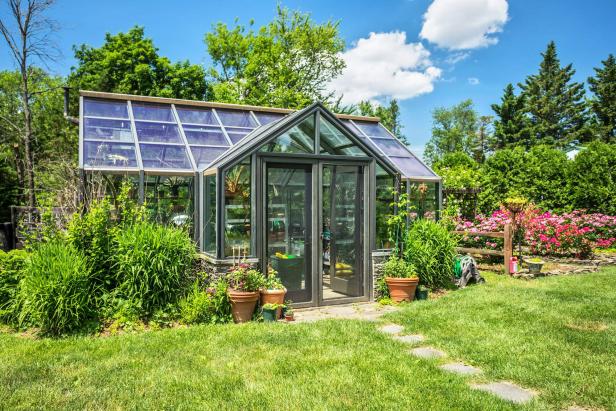Clarifying High Quality: Monarch Greenhouse Sheds Utah Exceptional Layouts
Wiki Article
Greenhouse Farming: Making The Most Of Crop Yields and Sustainability
Are you looking to maximize your crop yields while promoting sustainability? Look no more than greenhouse farming. With controlled settings and reduced water use, greenhouse farming provides the perfect solution for year-round production of fresh produce. By taking advantage of the power of technology and lasting techniques, you can make sure a plentiful harvest while lessening your environmental influence. Discover the advantages of greenhouse farming and begin enjoying the benefits today!Benefits of Greenhouse Farming
Are you wondering what makes greenhouse farming so helpful? Well, let me tell you! One of the major benefits of greenhouse farming is the capability to manage the atmosphere in which plants are grown. With a greenhouse, you can manipulate elements like moisture, temperature, and light to optimize plant growth. This indicates that you can expand crops throughout the year, despite the weather outside.One more advantage of greenhouse farming is the reduction in water usage. By utilizing water a lot more effectively, greenhouse farming assists to conserve this priceless resource.
In addition, greenhouse farming enables for much better insect and condition monitoring. With the regulated atmosphere, it is simpler to regulate the spread and avoid of pests and illness. This decreases the demand for hazardous pesticides, making greenhouse-grown plants much safer and more eco friendly.
Furthermore, greenhouse farming supplies defense versus extreme climate occasions. Crops grown in greenhouses are protected from hefty rainfall, solid winds, and hailstorms, which can harm or ruin exterior plants. Monarch Decorative Greenhouse Utah. This security guarantees a much more trusted and steady plant return, even throughout uncertain climate conditions

Taking Full Advantage Of Plant Yields With Managed Settings
To make best use of crop returns in greenhouse farming, you can attain optimal results by managing the atmosphere. One of the vital benefits of greenhouse farming is the capacity to regulate these environmental elements, enabling you to tailor them to the certain demands of each plant. By implementing these managed environments, you can take full advantage of crop yields and achieve consistent, premium produce throughout the year.Encouraging Sustainability Through Greenhouse Farming
Optimize sustainability in greenhouse farming by applying effective resource management strategies. One key aspect of promoting sustainability is the management of water use. By implementing systems such as drip watering and recirculation, you can significantly reduce water waste and make sure that every decrease counts. In addition, utilizing natural and eco-friendly products for pest control and fertilizing can assist reduce environmental impact. Integrated Bug Administration (IPM) techniques, for example, involve using valuable insects to control parasites, minimizing the requirement for webpage harmful pesticides. Power consumption can be decreased by making use of eco-friendly energy resources, such as solar panels, to power greenhouse procedures. This not just decreases dependence on nonrenewable fuel sources but additionally lowers greenhouse gas emissions. Appropriate waste management is an additional essential element in promoting sustainability. Applying recycling and composting systems can minimize the amount of waste sent out to land fills while also supplying nutrient-rich garden compost for plant development. Lastly, incorporating lasting practices in greenhouse style, such as using energy-efficient materials and optimizing all-natural lights, can further enhance sustainability. By embracing these resource management strategies, you can contribute to a much more sustainable future in greenhouse farming.Decreasing Water Usage in Greenhouse Farming
By implementing reliable water monitoring techniques, you can considerably minimize water use in greenhouse farming. Water is a vital source in farming, and conserving it find out here not only profits the environment however likewise helps to take full advantage of plant yields and profitability. One effective approach to lower water usage is through making use of drip watering systems. These systems provide water straight to the plant's roots, lessening dissipation and ensuring that every decrease is utilized efficiently. Furthermore, monitoring and managing the moisture levels inside the greenhouse can prevent unneeded water loss. By utilizing sensors and automated systems, you can change the air flow and irrigation as necessary, enhancing water use based upon the specific needs of your plants. An additional method is to reuse and catch rainwater. Gathering rain from the greenhouse roofing system and saving it in containers allows you to supplement your watering requires without counting solely on freshwater sources. Applying mulching techniques can assist maintain soil wetness, reducing the frequency of irrigation. Mulch serve as a barrier, stopping water dissipation and maintaining the soil cool and moist. By taking on these water-saving methods, you can lessen water waste, preserve resources, and produce an extra sustainable future for greenhouse farming.Year-Round Production of Fresh Create in Greenhouses
Greenhouses give a controlled setting that allows you to expand crops no matter of the external weather condition conditions. Greenhouses can be furnished with home heating and cooling systems to keep optimal temperature levels for various crops. By carrying out these techniques, you can optimize the productivity of your greenhouse and take pleasure in a constant supply of fresh create all year long.
Conclusion
In final thought, greenhouse farming provides numerous benefits for making best use of plant returns and promoting sustainability. Additionally, greenhouse farming permits for minimized water usage, making it an environmentally pleasant option.One of the major advantages of greenhouse farming is the capability to control the setting in which plants are grown.To maximize plant returns in greenhouse farming, you can achieve optimum results by controlling the setting. One of the vital advantages of greenhouse farming is the ability to manage these environmental factors, permitting you to customize them to the details requirements of each crop.By applying effective water monitoring methods, you can significantly lower water usage in greenhouse farming.In verdict, greenhouse farming see here now offers countless advantages for maximizing crop returns and promoting sustainability.
Report this wiki page